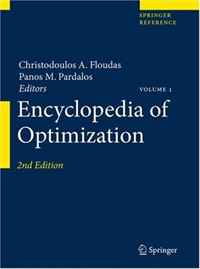Encyclopedia of Optimization

- Тип бумажная книга
- ISBN0387747583, 9780387747583
- АвторEd. C. A. Floudas, P. M. Pardalos
- ИздательствоSpringer
- Год издания2008
- Кол-во страниц4660
- Переплёттвёрдый
The goal of the Encyclopedia of Optimization is to introduce the reader to a complete set of topics that show the spectrum of research, the richness of ideas, and the breadth of applications that has come from this field. In 2000, the first edition was widely acclaimed and received high praise. J.B. Rosen crowned it “an indepensible resource” and Dingzhu Du lauded it as “the standard most important reference in this very dynamic research field.” Top authors such as Herbert Hauptman (winner of the Nobel Prize) and Leonid Khachiyan (the Ellipsoid theorist) contributed and the second edition keeps these seminal entries. The second edition builds on the success of the former edition with more than 150 completely new entries, designed to ensure that the reference addresses recent areas where optimization theories and techniques have advanced. Particularly heavy attention resulted in health science and transportation, with entries such as “Algorithms for Genomics,” “Optimization and Radiotherapy Treatment Design,” and “Crew Scheduling.”